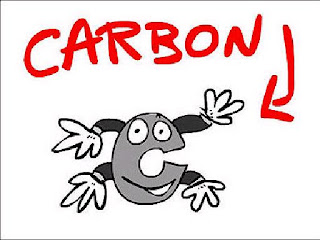
At the first meeting of the Knowle West Team on 29 Sept, which I attended both as a local resident and to represent Knowle’s Transition group
Sustainable Knowle, I was concerned that the term sustainability was pretty freely used eg featuring prominently in consultants
Urban Initiatives own draft vision statement, but that no sustainability benchmarks, indicators, measures, assessment processes...were discussed. I made a note to raise the issue at the meeting but did not get the chance, thus this note.
It strikes me that sustainability is at the heart of the vision and objectives drawn up by Knowle West’s residents*, who have a broad-based and inclusive definition of land and development value, compared with the narrow, purely financial, view on the value of land and development expressed by someone else at the meeting on the 29th. [*See this Bristol City Council page on
Knowle West Regeneration].
I brought this issue up at the Knowle West Residents Planning Group meeting on 6 Oct and said I would circulate some thoughts on sustainability benchmarks. I think the following principles are excellent as a sustainability guide to residents, campaigners, designers, architects, planners, developers – and there are some very good practical projects that are based upon them…
One Planet Living is a
‘global initiative based on 10 principles of sustainability developed by BioRegional and WWF’.‘The ten principles of one planet living are a framework to help us enjoy a high quality of life within a fair share of the earth's resources: *
Zero Carbon
Making buildings more energy efficient and delivering all energy with renewable technologies.
*
Zero Waste
Reducing waste arisings, reusing where possible, and ultimately sending zero waste to landfill.
*
Sustainable Transport
Encouraging low carbon modes of transport to reduce emissions, reducing the need to travel.
*
Sustainable Materials
Using sustainable products that have a low embodied energy.
*
Local and Sustainable Food
Choosing low impact, local, seasonal and organic diets and reducing food waste.
*
Sustainable Water
Using water more efficiently in buildings and in the products we buy; tackling local flooding and water course pollution.
*
Natural Habitats and Wildlife
Protecting and expanding old habitats and creating new space for wildlife.
*
Culture and Heritage
Reviving local identity and wisdom; support for, and participation in, the arts.
*
Equity, Fair Trade and Local Economy
Inclusive, empowering workplaces with equitable pay; support for local communities and fair trade.
*
Health and Happiness
Encouraging active, sociable, meaningful lives to promote good health and well being.’
*
More details on the above, including an expansion on what the 10 principles are all about
here. Several practical examples of projects, at various levels, such as: BedZed UK; One Brighton; One Gallions, Thames Gateway; One Planet Sutton; RuralZED, can be found
here.
The building products supplier
Kingspan sponsored ‘Lighthouse’ demonstration zero carbon project at the Building Research Establishment (pictured), the work of
Mount Pleasant Ecological Park and the principles developed at the
Eden Project may or may not be fully realisable in practice, as yet, but they can certainly be used to inform our sustainable decision making, design and construction.
 Work has restarted on the groundbreaking "green"
homes project at Hanham Hall on the outskirts of Bristol... Developer Barratt
Homes won the contract to build the pioneering one, two, three, four and
five-bed homes which are expected to set the construction industry's benchmark
for "green" living... so they meet the new 2016 Zero Carbon Building
Regulation standards...(full story)
Work has restarted on the groundbreaking "green"
homes project at Hanham Hall on the outskirts of Bristol... Developer Barratt
Homes won the contract to build the pioneering one, two, three, four and
five-bed homes which are expected to set the construction industry's benchmark
for "green" living... so they meet the new 2016 Zero Carbon Building
Regulation standards...(full story)














